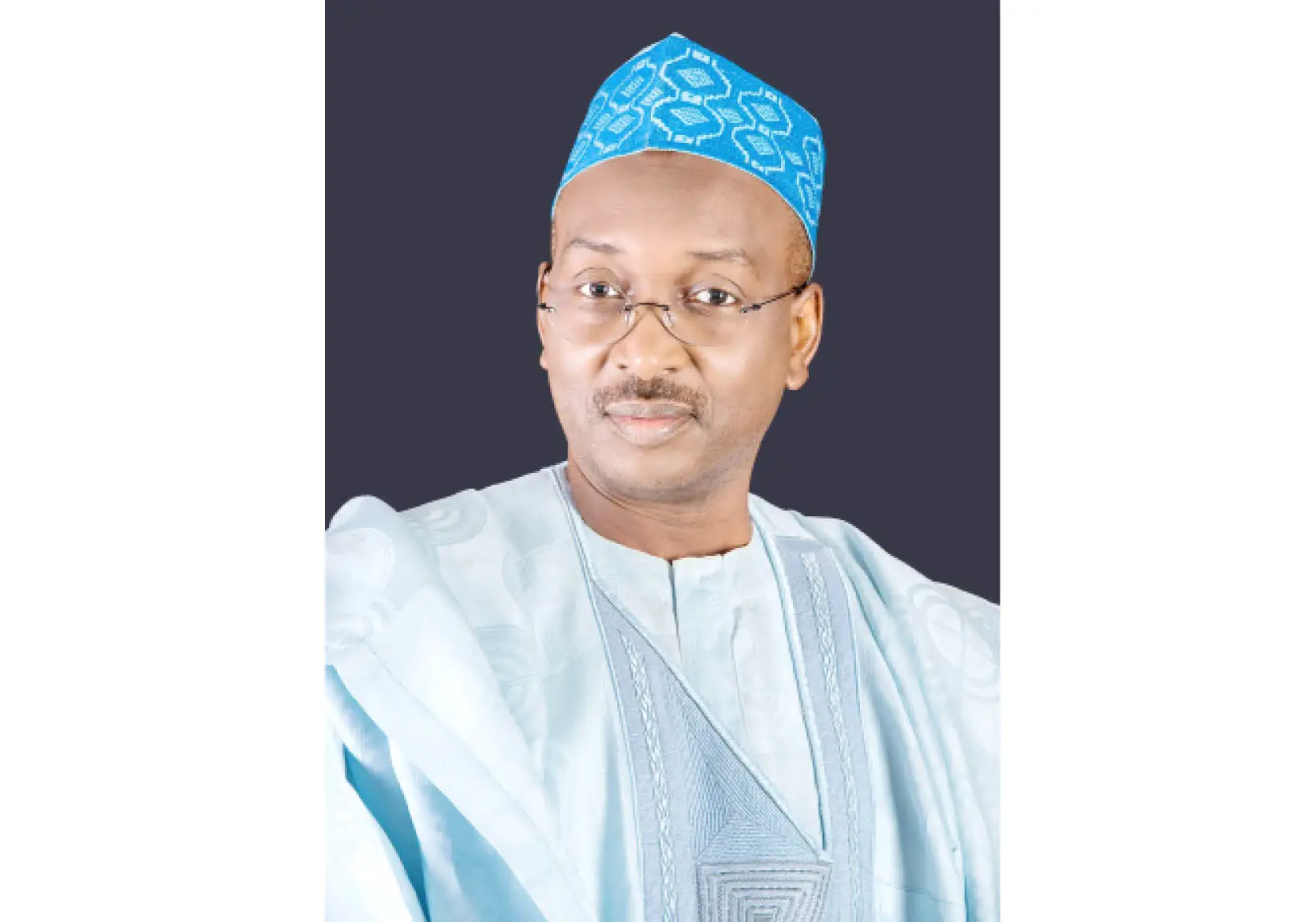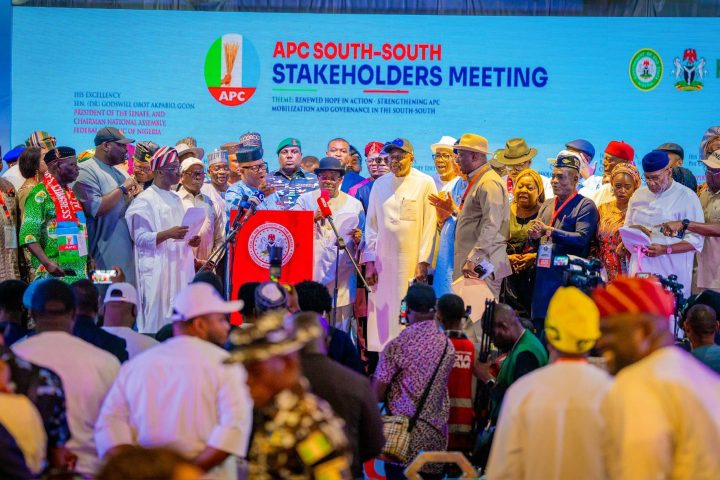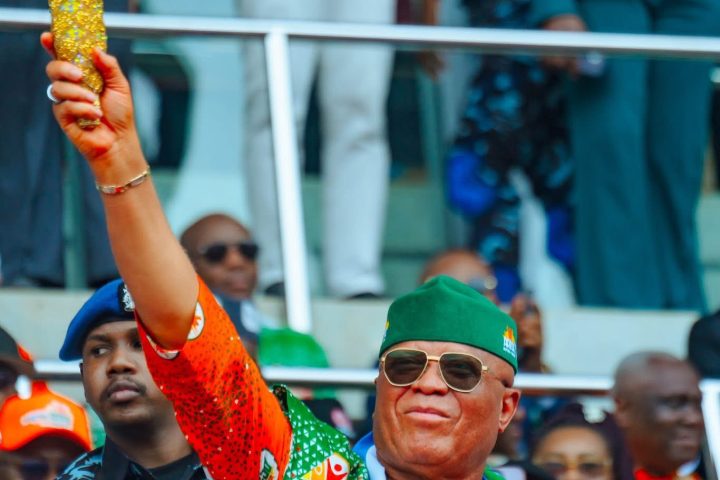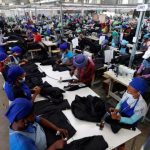Reacting to President Asiwaju Bola Ahmed Tinubu’s National Broadcast of Monday, July 31, 2023, Nigeria Labour Congress (NLC), dismissed it arguing that it is ‘not the silver bullet Nigerians expected’. Silver bullet simply means that the national broadcast of President Asiwaju Tinubu failed to address the problems facing Nigerians.
Given that the main issue, which the national broadcast of President Asiwaju Tinubu sought to address has to do with the hardship facing Nigerians occasioned by the withdrawal of petrol subsidy, beyond the issues contained in the national broadcast, what is NLC expecting?.
Join our WhatsApp ChannelAmong other reasons given by the NLC why the President’s speech wasn’t the silver bullet was that it ‘was completely silent on the repair of our national refineries.’ If the speech was silent on the repair of refineries, does that fall short of the expectations of Nigerians?
READ ALSO: Subsidy Removal: Tinubu Promises To Review Workers’ Salaries
While acknowledging that apart from the repair of refineries, the NLC identified other four issues as reasons why President Asiwaju’s Tinubu’s July 31 National Broadcast didn’t provide the solutions of the hardship Nigerians are facing, somehow, the NLC was more speaking like a political opposition to President Asiwaju Tinubu’s government. Being a political opposition to the government of President Asiwaju Tinubu, nothing in the proposals contained in the national address merit acceptance as solution to Nigeria’s problems by the NLC. As far as the NLC is concerned, repairs of refineries, unmasking those behind the subsidy fraud, matching public promises with commitment on issue of minimum wage, increase salaries of workers by Federal Government, and promises of palliatives are the solutions to hardship facing Nigerians. Didn’t the July 31 national broadcast attempt to address these issues?
READ ALSO: Subsidy: FG To Give ₦75bn To 75 Companies To Boost Production – Tinubu
Perhaps, not in the language expected by the NLC, certainly some of these issues are addressed either directly or indirectly. Going through the NLC’s statement signed by Comrade Joe Ajearo, President of the NLC, one is tempted to conclude that the main objective of their response was more to dismiss all the policy proposals contained in the President’s address as a justification of why the scheduled national protest being organised by the NLC will go ahead on August 2. The statement completely ignores all the proposals contained in President Asiwaju Tinubu’s broadcast. It is almost as if the NLC response was written even before the broadcast and therefore completely blind of all the proposals. Having served the NLC, and conversant with the tradition of critically and dispassionately reviewing government’s policy proposals, it was disappointing that the NLC reduced its responses to generalised commentary without reference to the specific issues contained in President Tinubu’s national broadcast.
As Nigerians, we must appeal to NLC leadership to rise above the narrow sentiment of playing to the gallery based on some deceptively flimsy argument of a so-called silver bullet, if you like silver bullet politics, which is simply egocentric that is inconsistent with the interest of Nigerians, including that of the working class. While acknowledging that there would be gaps in the proposals by government and there would be challenges in terms of implementation, especially when it comes to guaranteeing that broader interests of Nigerians are accommodated, swiftly dismissing them in the manner done by NLC is unacceptable and will not augur well for our democracy. The mere fact that President Asiwaju Tinubu finds it compelling to address the nation given the difficulties Nigerians are facing since the withdrawal of fuel subsidy is commendable. If anything, this confirms that President Asiwaju Tinubu is not in denial and aspire to ensure that his government is responsive.
As argued in the past, part of the challenges of finding solutions to Nigeria’s problems, or silver bullet politics as NLC would want us to consider, is the issue of accommodating the diverse interests of Nigerians in designing and implementing policies of government. Accommodating the diverse interests of Nigerians is about representation and responsiveness, which is what is required to affirm that ‘sovereignty belongs to the people of Nigeria from whom government through the constitution derives all powers and authority’ and ‘participation by the people in their government shall be ensured in accordance with the provisions of the constitution as provided in section 14 (2) (a and c) of the 1999 Nigerian constitution as amended.
We must admit that the decision to address the nation represent remarkable progress in the management of contentious public policy in the country. It is indeed required to give life to section 14 (2) (a and c) of the Nigerian constitution. In the past, such addresses and proposals contained are only made after protests and strikes. Coming before any strike or protest, it is important therefore, we encourage the government to take forward all the proposals contained in the address and use them to engage targeted organised groups in the country, including the NLC. For instance, the Federal Government should immediately meet with Organised Private Sector to work out modalities for the implementation and disbursement of the proposed N75 billion aimed at strengthening the manufacturing sector ‘to increase its capacity to expend and create good paying jobs.’ The engagement should put in place agreed conditions and framework for the selection of the 75 enterprises to access the N1 billion credit. Part of the conditions should include the minimum number of workers to be employed by each of the beneficiary enterprises.
Similarly, government should also engage organisations of micro, small and medium-sized enterprises to set conditions and framework to access the N125 billion being set aside to energise the sector. Criteria for the selection of the 1 million nano businesses that would access the N50 billion Conditional Grant should be agreed. Also, the engagement with organisations of micro, small and medium-sized enterprises should establish needed criteria for the selection of the 100,000 MSMEs that would access the start-ups Conditional Grant of N75 billion being proposed by government.
The third category that the federal government should immediately engage is farmers and agricultural associations aimed at putting in place clear framework for the disbursement of 225,000 metric Tonnes of fertilizers. Seedlings and other inputs. In addition, the federal government may wish to use the engagement with this group to explore strategies of achieving the cultivation of 500,000 hectares of farmland and all-year-round farming. Noting that government has earmarked N200 billion from the N500 billion approved by National Assembly, it will be necessary to use the engagement with farmers and agricultural associations to negotiate both ownership and commitment to achieve success.
The fourth category of groups that should be engaged immediately is transporters aimed at negotiating implementation of proposed investment of N100 billion to acquire 3000 units of buses. Deeper strategic thinking will be required in engaging this category given that this is the sector that is directly affected by high increases in prices of PMS because of withdrawal of subsidy. The goal of engagement with respect to transporters should be to revolutionise the transport sector, which should lead to the rebirth of public transportation in the country. This would require stronger collaboration with state governments, most of whom already have established transport services.
All these issues were swiftly dismissed by NLC with the cheap claim of a silver bullet, which may reflect the knowledge gap in NLC. Leaders of NLC have historically demonstrated humility in engaging policy issues by opening and developing stronger networks with academic and knowledgeable constituencies. It is possible that NLC response to President Asiwaju Tinubu’s national broadcast did not seek to draw input from some the traditional allies of the NLC.
Had President Asiwaju Tinubu denied that the withdrawal subsidy has brought hardship to Nigerians and failed proposed measures to address them, the claim that the national broadcast wasn’t the silver bullet Nigerians expected would be justified. Were the proposals contained in President Asiwaju Tinubu sufficient to mitigate all the hardships Nigerians are facing? May be not. If not, one would expect the NLC to go a step further to highlight what will be required. May be the four issues emphasised in the response of the NLC are the proposed additional issues. These are: repairing our refineries, unmasking those behind the subsidy fraud, not matching public promises with commitment on minimum wage, failure of Federal Government to increase salaries of workers, and promises of palliatives are empty.
What are the details of all these and what actions are required to achieve them are not contained in the NLC’s statement. The challenge of giving practical expression to section 14 (2) (a and c) of the 1999 Nigerian constitution as amended is about providing the much-needed leadership to change Nigerian politics. This is about the extent to which initiatives contained in the July 31 national broadcast reflects the diverse interests on Nigerians. To the extent that proposals highlighted in the national address cover the interests of workers, organised private sector, micro, small and medium enterprises, farmers and agricultural groups, transporters, etc., wide spectrum of interests are already targeted. The crucial issue would be that of ensuring success in achieving expected results as well as allowing for additional scope to cover other interests of Nigerians not captured in the President’s broadcast.
What is required to achieve success especially in terms of engaging Nigerians to affirm that truly sovereignty belongs to the people is to take every necessary step to develop framework for engaging groups and organisations of Nigerians to facilitate policy negotiations and implementation. In the context of NLC, it is about reviving the National Labour Advisory Council (NLAC) and use it to promote tripartism, which is what the challenge of developing and managing palliatives arising from withdrawal subsidy requires. A situation whereby labour organisations use their singular interest to force the hands of government in any direction in managing public policy that affect all Nigerians must be moderated.
While acknowledging that what was contained in the national broadcast of President Asiwaju Tinubu of July 31 should be treated as proposals that require further engagement with all stakeholders, including labour, the federal government must take every necessary step to revive NLAC and get NLC and all other labour associations to use the tripartite platform to negotiate policy design and implementation. Being a negotiating platform, labour and organised private sector should be free to also make proposals to be negotiated.
Given where we are as a democratic nation, rather than dismiss proposals coming from government, especially when it comes with the kind of opportunity of saving one trillion Naira in two months, responsive and representative organisations such as NLC should be coming up with proposals of what to do with the trillion Nairas that are being saved. Given the challenge of insecurity and the problems of policing the country, can’t we target investing such resources or at least part of it to address some of the security needs of the country. If part of the fear of citizens about state policing is funding, doesn’t this give us the opportunity of pushing the federal government and all our state governments to negotiate sustainable funding framework that can guarantee adequate funding of state police?
As a democratic nation, framework for citizen’s engagement aimed at providing what NLC call silver bullet should be to facilitate development of strong synergy between government and Nigerian citizens. The President Asiwaju Tinubu led federal government, being a government produced by a party envisioned to be progressive, should seek to introduce a new framework of engagement between government and organised groups in the country to produce a new orientation of citizens – government relations that would lead to the emergence of policy negotiation – agreement – announcement – implementation. This new orientation will require problem posing communication framework that facilitate consultations to resolve Nigeria’s problems by providing important information that would produce new policy initiatives.
Part of the appeal that must be made to all organised groups in the country is to demonstrate corresponding commitment to also share the burden of resolving Nigeria’s challenges. The current attitude of distrust against government, which makes groups to dismiss proposals of government without attempt to present alternatives should be moderated. Similarly, a situation whereby groups, including NLC believe that the only way they can engage government and achieve results is through strikes and protests must change. For democracy to be meaningful, it must be about constant negotiations and engagements to produce agreements.
Now that the young government of President Asiwaju Tinubu is about to be fully constituted with ministers appointed, President Asiwaju Tinubu should consider giving all his ministers clear mandate to ensure strong engagement with organised groups. In particular, engagement with NLC and other labour groups must target pre-empting strikes and protests in all sectors. In the context of that, as a democratic nation, we must begin to set benchmarks of allowable limits for all strikes in all sectors. Minister of Labour and by extension ministers in all sectors who fail to operate within such benchmarks must be shown the way out. This is more to ensure that government services in all sectors accommodate the diverse interests of citizens in those sectors.
That is the silver bullet, which President Asiwaju Tinubu’s government should give to Nigerians.
Salihu Moh. Lukman
C/o All Progressives Congress
North-West Zonal Office
Kaduna
Victor Ezeja is a passionate journalist with seven years of experience writing on economy, politics and energy. He holds a Master's degree in Mass Communication.

















Follow Us